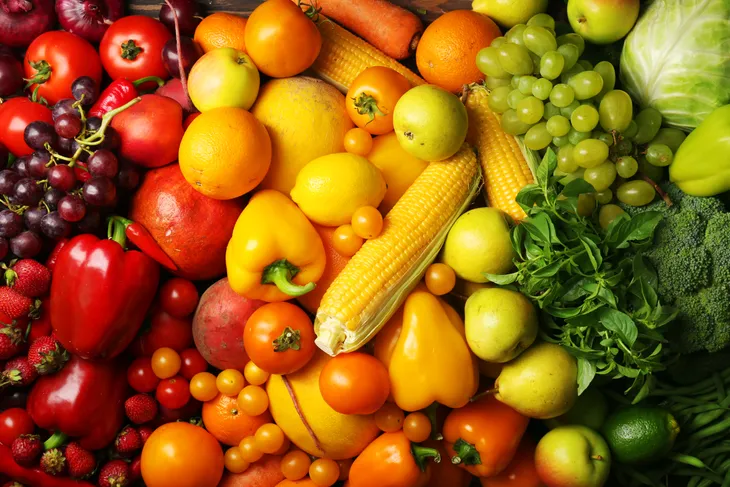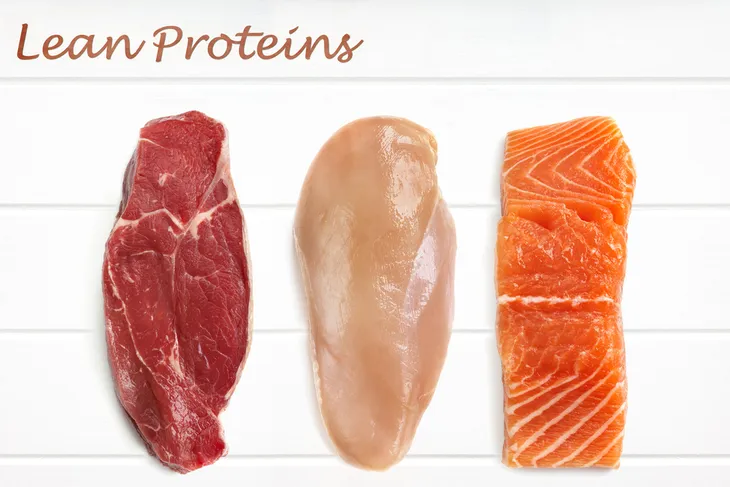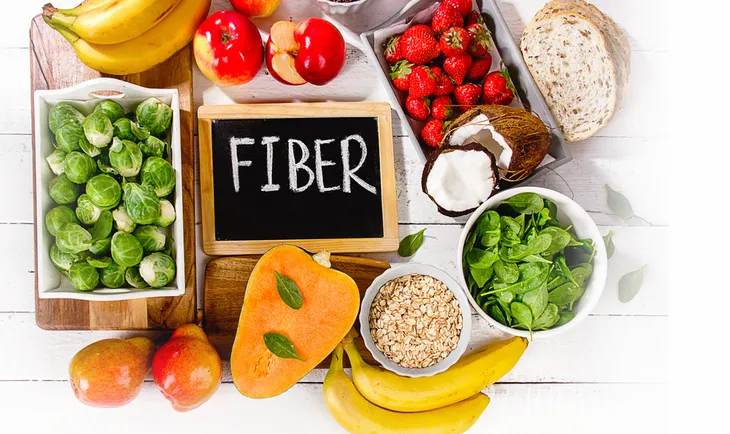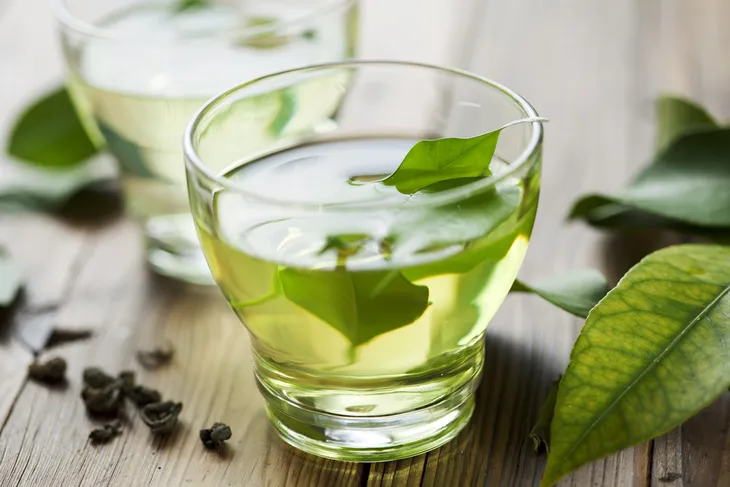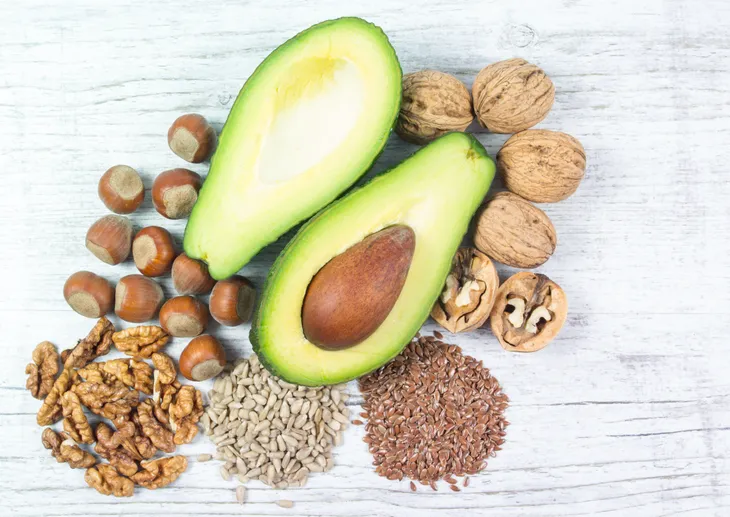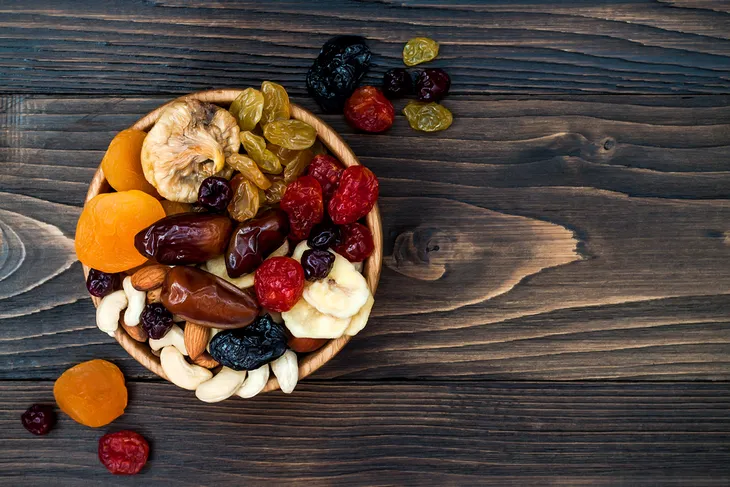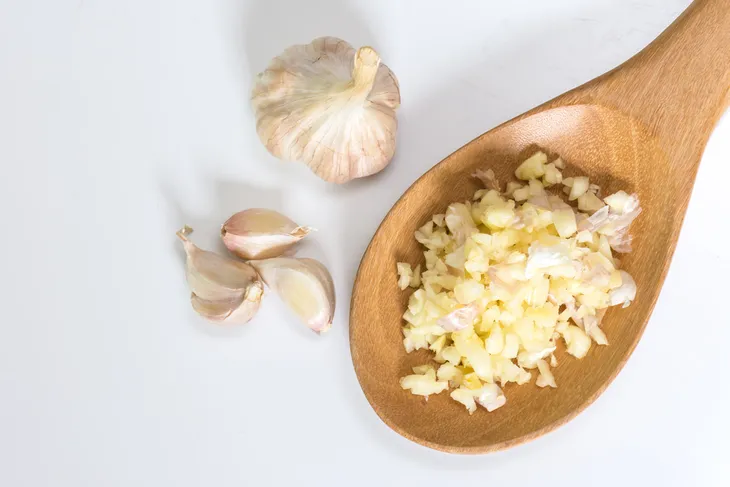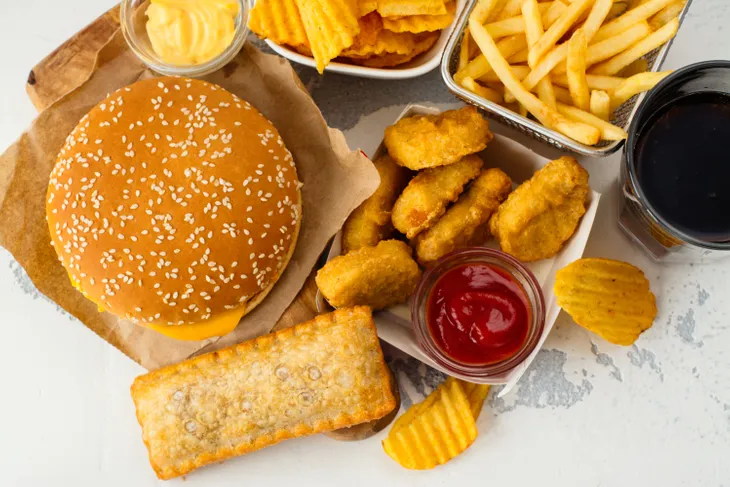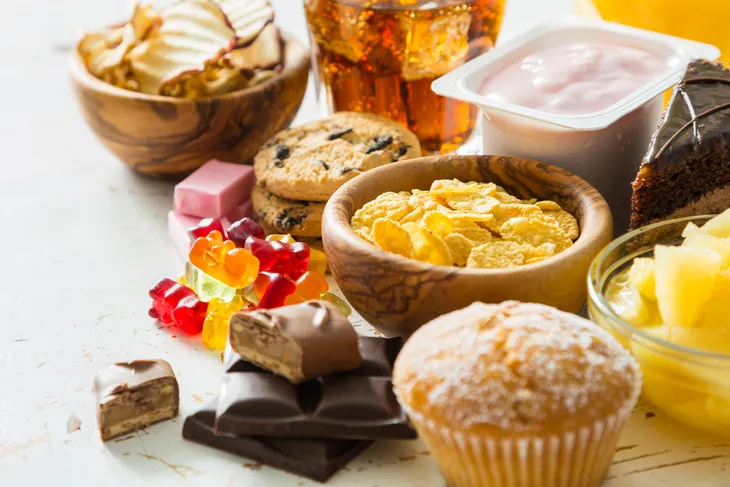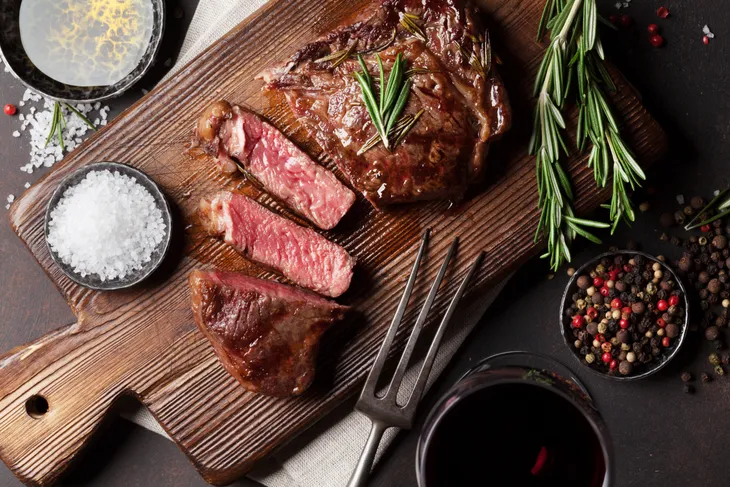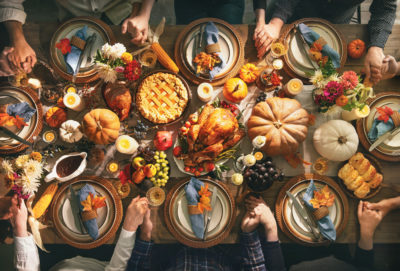The American Cancer Society estimates pancreatic cancer will strike approximately 55,440-people in the U.S. during 2018. Of that number, more than 44,000-are expected not to live. While the numbers are grim, there are ways you can make the disease more manageable and possibly improve your quality of life through diet.
While these foods won’t erase the cancer, they can help reduce associated symptoms and “help you stay energized, focused, and better able to take cancer on and win,” it notes. Here are 12 foods you should eat (or avoid) if you’ve been diagnosed with this type of cancer, or want to reduce your risk of developing it…
Good: Fruits and Veggies
Healthline says pancreatic cancer patients should eat at least 5-servings of non-starchy vegetables and fruits per day, citing recommendations from the World Cancer Research Fund International.
It suggests in particular eating blueberries, oranges, broccoli, kale, and spinach, which are rich with antioxidants, fibers, and phytochemicals. “Cooked vegetables may be easier for you to tolerate than raw ones,” it adds.
Good: Lean Protein
Proteins are important building blocks of the body, and are especially good for the pancreas, according to SarahCannon.com. Not only can protein help your body repair damaged tissues, it can also give the immune system a boost, it adds.
However, the source suggests sticking to lower-fat protein sources including chicken, fish, eggs, low-fat dairy, nuts, beans, and soy products. “Include a source of lean protein at all meals and snacks,” it notes.
Good: High Fiber Starches
You may think that starchy foods are an automatic no-no, but that’s not the case, according to Healthline.com. The source says these following complex carbohydrates help keep your energy levels up, and won’t spike your blood sugar like simple carbs will.
These high-fiber choices include potatoes, beans, lentils, oatmeal, quinoa, and brown rice, adds the source. It notes that you can also find folate (a B vitamin) in these foods, which is helpful for reducing the risk of developing pancreatic cancer in the first place.
Good: Green Tea
Green tea has actually been touted as a way to reduce pancreatic cancer risk, according to ScienceDaily.com. It cites a study published by Metabolomics that notes EGCG, an active ingredient in green tea, “changed the metabolism of pancreatic cancer cells by suppressing the expression of an enzyme associated with cancer.”
The study also touches on another component called oxamate, which the source says also reduces cancer enzyme activity. “By explaining how green tea’s active component could prevent cancer, this study will open the door to a whole new area of cancer research and help us understand how other foods can prevent cancer or slow the growth of cancerous cells,” it notes.
Good: Healthy Fats
Normally when we hear the word “fat” associated with food, we tend to avoid it (or at least try to limit it). However, there is such a thing as healthy fats, from foods including avocados, nuts, seeds, and olive oil, according to SarahCannon.com.
The source warns to avoid greasy or fatty foods that have been fried, and instead turn to sources of healthy fats that have been baked, broiled or grilled.
Good: Non-Caffeinated Fluids
The same source stresses the importance of staying hydrated throughout your cancer treatment, and water is never a bad choice. Other sources also say sport drinks with electrolytes can help you recover some of the salts you may lose.
The goal is to consume 64-ounces of fluid per day during treatment to prevent dehydration, says SarahCannon.com. However, if you like to down several cups of coffee or tea (or soda) per day, try decaffeinated versions instead, as caffeine may increase your risk of going dry.
Bad: Dried Fruits and Seeds
We’ve already told you that seeds and nuts are a healthy source of fat, but Livestrong says if you’re suffering from swelling of the small intestine from cancer treatment (known as radiation enteritis), then it’s best to avoid them.
Along with avoiding seeds and nuts if this condition arises, the source also suggests steering clear of whole-grain cereals and breads, coconut, uncooked vegetables, and popcorn, all which normally offer some health benefits.
Bad: Odorous Foods
Sometimes foods have a distinct aroma that fills the room, and your nose gets your tummy ready for the feast. However, when you’re battling pancreatic cancer, foods with strong odors aren’t the best idea, says Livestrong.
That’s because nausea is a common symptom of this type of cancer, and “highly aromatic foods” can be a trigger. It also suggests preparing cold foods rather than hot foods, as the latter can increase scents. “Avoid foods with strong odors such as scallions, onions, fish, and cheeses with a pungent odor,” it adds.
Bad: Greasy Foods
Here are where the “bad” fats come into play, especially when it relates to pancreatic cancer. The source says to avoid fatty meats such as beef, bacon, and fried chicken, as well as high-fat snacks like potato chips/dip, and nachos.
“Foods that are high in fat and protein are difficult to tolerate if you have pancreatic cancer,” warns the source. Stick to the aforementioned lean sources of protein to make it easier on your digestive system, says the source.
Bad: Alcohol
Drinking too much booze is bad for your health in general, but consuming alcohol on a regular basis can be particularly problematic if you’re dealing with pancreatic cancer, says Livestrong.
Heavy drinking may worsen your symptoms if you already have the disease, and can increase your risk of developing it in the first place, adds the source.
Bad: Sugar and Refined Carbohydrates
Livestrong says most people with this form of cancer will have trouble processing simple carbohydrates and refined sugars (think candy, syrup, and soda).
The source suggests consulting your doctor if you’re experiencing glucose intolerance or dumping syndrome, which the source says is when food moves too quickly from your stomach to your small intestine (causing cramps and diarrhea, among other symptoms). Aside from these potential problems, sugary foods like these offer empty calories, it adds.
Bad: Red Meat/Processed Meat
Healthline also warns against red meats (such as beef and pork) and processed meats (such as hot dogs, bacon, and salami) because they can be hard for pancreatic cancer patients to digest.
On top of that, the source also says these types of meat have been linked to cancer risk. The biggest risk appears to be connected to bowel cancer, but there’s also sources citing a possible link to stomach and pancreatic cancer risks as well.

